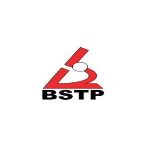Sessions & Tracks
Track 1: Biotechnology
Biotechnology is the wide zone of science including living systems and organisms to create or make items, or "any innovative application that utilizes natural systems, living beings, or subordinates thereof, to make or alter items or procedures for explicit use". Contingent upon the devices and applications, it frequently covers with the (related) fields of molecular biology, bio-engineering, biomedical engineering, bio manufacturing, molecular engineering, etcPharmaceutical Biotechnology and Drug Design.
Pharmaceutical Biotechnology is the science that covers all technologies required for producing, manufacturing and registration of biological drugs. Pharmaceutical companies use biotechnology for manufacturing drugs, pharmacogenomics, gene therapy, and genetic testing. Biotech companies make biotechnology products by manipulating and modifying organisms, usually at molecular level. Pharmaceutical Biotechnology is an increasingly important area of science and technology. It contributes in design and delivery of new therapeutic drugs, diagnostic agents for medical tests, and in gene therapy for correcting the medical symptoms of hereditary diseases. The Pharmaceutical Biotechnology is widely spread, ranging from many ethical issues to changes in healthcare practices and a significant contribution to the development of national economy. Euro Biotechnology 2021 will focus on Biopharmaceuticals Discovery, Biopharmaceutical Regulations and Validations, Biologics and Biosimilars and Clinical Research/Clinical trials,Biotechnology Conferences.
Track 2 : Microbial Biotechnology
Microbial biotechnology, enabled by genome studies, will lead to breakthroughs such as improved vaccines and better disease-diagnostic tools, improved microbial agents for biological control of plant and animal pests, modifications of plant and animal pathogens for reduced virulence, development of new industrial catalysts and fermentation organisms, and development of new microbial agents for bioremediation of soil and water contaminated by agricultural runoff, Biotechnology Conferences.
Track 3: Nano Biotechnology
Nano Biotechnology is a discipline in which tools from nanotechnology are developed and applied to study biological phenomena. Nano biotechnology, bio nanotechnology, and Nano biology are terms that refer to the intersection of nanotechnology and biology. Bio nanotechnology and Nano biotechnology serve as blanket terms for various related technologies. The most important objectives that are frequently found in Nano biology involve applying Nano tools to relevant medical/biological problems and refining these applications. Developing new tools, such as peptide Nano sheets, for medical and biological purposes is another primary objective in nanotechnology,Biotechnology Conferences.
Track 4: Stem Cell Biotechnology and Regenerative Medicine
Stem cell biotechnology is a field of biotechnology that develops tools and therapeutics through modification and engineering of stem cells. Stem cell biotechnology is important in regenerative medicine. Regenerative medicine is an Inter disciplinary branch that tends to repair or regenerate damaged cells or tissues to regain or restore their normal function,Biotechnology Conferences.
Track 5: Medical Biotechnology
Medical Biotechnology is the use of living cells and cell materials to research and produce pharmaceutical and diagnostic products that help treat and prevent human diseases. leading to the development of several innovative techniques for preventing, diagnosing, and treating diseases, Biotechnology Conferences.
Track 6: Oncolytic Biotechnology
Oncolytic Biotechnology is the study of oncolytic virus, the virus that preferentially infects and kills cancer cells. As the infected cancer cells are destroyed by oncolysis, they release new infectious virus particles or virions to help destroy the remaining tumour. Oncolytic viruses are thought not only to cause direct destruction of the tumour cells, but also to stimulate host anti-tumour immune responses, Biotechnology Conferences.
Track 7: Genetics and Molecular biotechnology
Genetics and Molecular biotechnology is the use of laboratory techniques to study and modify nucleic acids and proteins for applications in areas such as human and animal health, agriculture, and the environment. Molecular biotechnology results from the convergence of many areas of research, such as molecular biology, microbiology, biochemistry, immunology, genetics, and cell biology. It is an exciting field fueled by the ability to transfer genetic information between organisms with the goal of understanding important biological processes or creating a useful product. The tools of molecular biotechnology can be applied to develop and improve drugs, vaccines, therapies, and diagnostic tests that will improve human and animal health. Molecular biotechnology has applications in plant and animal agriculture, aquaculture, chemical and textile manufacturing, forestry, and food processing, Biotechnology Conferences.
Track 8: Environmental Biotechnology
Environment biotechnology is applied and used to study the natural environment. Environmental biotechnology could also imply that one try to harness biological process for commercial uses and exploitation. It is "the development, use and regulation of biological systems for remediation of contaminated environment and for environment-friendly processes (green manufacturing technologies and sustainable development). Environmental biotechnology can simply be described as the optimal use of nature, in the form of plants, animals, bacteria, fungi and algae, to produce renewable energy, food and nutrients in a synergistic integrated cycle of profit making processes where the waste of each process becomes the feedstock for another process, Biotechnology Conferences.
Track 9: Plant and Forest Biotechnology
Plant Biotechnology is a set of techniques used to adapt plants for specific needs or opportunities. Situations that combine multiple needs and opportunities are common, it is prominent in the field of medicine interfacing biotechnology and bioinformatics, the molecular characterization of medicinal plants; molecular farming; and result from chemistry, nanotechnology, pharmacology, agriculture, Biomass and biofuels as well. Plant Biotechnology is the technology which is used for getting modern product with high yield and at faster rate. Biotechnology is being used as a tool to grow trees with special characteristics. When used responsibly, society and the environment can benefit from advanced tree breeding technologies,Biotechnology Conferences.
Track 10: Food and Feed Biotechnology
Modern biotechnology can play an important role in meeting our future food demands in a sustainable manner. Biotech can increase crop yields, help develop new crops, and adapt existing crops to be cultivated on marginal lands with reduced fresh-water inputs. The technology may not only improve the nutritional quality of staple foods, but can also diminish the need to cultivate crops on deforested land. Rapid advances in biotechnology are reducing the time and cost to develop improved food and feed strains and to engineer crops with improved drought and salinity tolerance and improved nutritional quality. New biotechnology tools enable scientists to introduce biochemical pathways to cells so we can breed plants that are safe and cost-effective sources of these nutrients, Biotechnology Conferences.
Track 11: Marine Biotechnology
Marine biotechnology, sometimes referred to as “blue biotechnology”, exploits the diversity found in marine environments in terms of the form, structure, physiology and chemistry of marine organisms, many of which have no equivalent on land, in ways which enable new materials to be realised. Marine biotechnology is a knowledge generation and conversion process: it unlocks access to biological compounds and provides novel uses for them. By exploring and harnessing marine materials, entirely new uses in areas far from the marine are likely to be found. Marine biotechnology is an opportunity recognised by policy makers and the enterprise sector as offering significant potential to fill market gaps for new products, Biotechnology Conferences.
Track 12: Animal Biotechnology
Animal biotechnology is a branch of biotechnology in which molecular biology techniques are used to genetically engineer (i.e. modify the genome of) animals in order to improve their suitability for pharmaceutical, agricultural or industrial applications. It covers the identification and manipulation of genes and their products, stressing applications in domesticated animals. Animal biotechnology has been used to produce genetically modified animals that synthesize therapeutic proteins, have improved growth rates or are resistant to disease, Biotechnology Conferences.
Track 13: Enzyme and Protein Engineering
Protein engineering has emerged as an important tool to overcome the limitations of natural enzymes as biocatalysts. Recent advances have mainly focused on applying directed evolution to enzymes, especially important for organic synthesis, such as monooxygenases, ketoreductases, lipases or aldolases in order to improve their activity, enantioselectivity, and stability. The combination of directed evolution and rational protein design using computational tools is becoming increasingly important in order to explore enzyme sequence-space and to create improved or novel enzymes, Biotechnology Conferences.
Track 14: Agriculture Biotechnology
Agricultural biotechnology is an area of agricultural science involving the use of scientific tools and techniques, including genetic engineering, molecular markers, molecular diagnostics, vaccines, and tissue culture, to modify living organisms: plants, animals, and microorganisms. Crop biotechnology is one aspect of agricultural biotechnology which has been greatly developed upon in recent times. Desired trait is exported from a particular species of Crop to an entirely different species. These transgene crops possess desirable characteristics in terms of flavour, colour of flowers, growth rate, size of harvested products and resistance to diseases and pests, Biotechnology Conferences.
Track 15: Biomedical Engineering & Applications
Biomedical engineering is the application of engineering principles and design concepts to medicine and biology for healthcare purposes (e.g. diagnostic or therapeutic). This field seeks to close the gap between engineering and medicine, combining the design and problem solving skills of engineering with medical biological sciences to advance health care treatment, including diagnosis, monitoring, and therapy. Biomedical engineering has only recently emerged as its own study, as compared to many other engineering fields. Such an evolution is common as a new field transitions from being an interdisciplinary specialization among already-established fields, to being considered a field in itself. Much of the work in biomedical engineering consists of research and development, spanning a broad array of subfields, Biotechnology Conferences.
Track 16: Biotechnology in Dentistry
The dental world will live in ten years more changes than 130 years of practice.The arrival of digital combined with the generalization of successful surgical techniques such as implantology, the ever more relevant information of patients, the economic crisis: all these factors tend to modify the exercise habits of the usual actors of the dental world, prosthetists and dentists. Biotech Dental has contributed to the democratization of implantology, the use of new aesthetic products and services and finally the introduction of new digital technologies. The distribution of Biotech Dental products have an extensive presence in most of the world. This international situation gives us the opportunity to meet the expectations and requirements of surgeons and practitioners from different cultures and backgrounds, Biotechnology Conferences.
Track 17: Biomaterials
A biomaterial is a substance that has been designed to act with biological systems for a medical purpose - either a therapeutic (treat, augment, repair or replace a tissue perform of the body) or a diagnostic one. It’s experienced steady and robust growth over its history, with several firms finance massive amounts of cash into the event of latest product. Biomaterials science encompasses components of medication, biology, chemistry, tissue engineering and materials science. They're usually used and/or custom-made for a medical application, and therefore contain whole or a part of a living structure or medical specialty device that performs, augments, or replaces a natural perform. Such functions are also comparatively passive, like being employed for a heart valve, or could also is bioactive with an additional interactive practicality like hydroxyl-apatite coated hip implants. Biomaterials also are used on a daily basis in dental applications, surgery, and drug delivery, Biotechnology Conferences.
Track 18: Bioinformatics & Computational Biology
Bioinformatics and Computational biology is an interdisciplinary field that develops and applies computational methods to analyse large collections of biological data, such as genetic sequences, cell populations or protein samples, to make new predictions or discover new biology. The computational methods used include analytical methods, mathematical modelling and simulation,Biotechnology Conferences.
Track 19: Biotechnology Applications
Biotechnology has application in four major industrial areas, including health care (medical), crop production and agriculture, nonfood (industrial) uses of crops and other products (e.g. biodegradable plastics, vegetable oil, biofuels), and environmental uses. Applied Microbiology and Biotechnology focusses on prokaryotic or eukaryotic cells, relevant enzymes and proteins, applied genetics and molecular biotechnology, genomics and proteomics, applied microbial and cell physiology, environmental biotechnology, process and products and more,Biotechnology Conferences.
Track 20: Bioprocess and Fermentation Technology
A bioprocess is a specific process that uses complete living cells or their components to obtain desired products. Transport of energy and mass is fundamental to many biological and environmental processes. Areas, from food processing to thermal design of building to biomedical devices to pollution control and global warming, require knowledge of how energy and mass can be transported through materials,Biotechnology Conferences.
Track 21: Bioremediation and Biodegradation
Biodegradation is the biological process in which a material is biologically degraded. It is a natural process that takes place without human intervention. Bioremediation is the engineered process of application of biological means (including bacteria, algae, fungi, etc.) to degrade a material. Biodegradation is a slow process process, while bioremediation is a faster process. Human intervention is used to control the rate of bioremediation, by control of temperature, availability of food or nutrients, etc. Biodegradation, on the other hand, is controlled by nature. Biodegradation takes place anywhere and everywhere, while bioremediation is planned at a contaminated site. Biodegradation can be both beneficial and harmful (such as degradation of metals in biofouling), while bioremediation is designed to be beneficial to us, Biotechnology Conferences.
Track 22: Bio-Safety and Bioethics
Biotechnology has the ability to solve the upcoming problems of the world’s increasing population. However, there is often reluctance among the public to accept and support biotechnological products in medicine, industry, or agriculture. There are many safety and ethical issues raised for GM crops and human cloning. Raising transgenic animals and plants has fueled ethical concerns, and the scientists have faced a lot of resistance where genetically modified crop plants or reproductive cloning research of human beings is involved. Thus, biosafety and bioethics are continuously being expanded to combine the rationale of ever-increasing scientific knowledge in biotechnology that is often in conflict with the long-standing social and moral value system of our society, Biotechnology Conferences.
Track 23: Industrial and Manufacturing Biotechnology
Industrial biotechnology is that the application of biotechnology for industrial functions, together with industrial fermentation. The observe of exploitation cells like micro-organisms, or elements of cells like enzymes, to come up with industrially helpful product in sectors like chemicals, food and feed, detergents, paper and pulp, textiles and biofuels. Industrial Biotechnology offers a premier forum bridging basic analysis and R&D with later-stage development for sustainable bio based mostly industrial and environmental applications, Biotechnology Conferences.
Market Analysis
Market Analysis
Euro Biotechnology 2022 welcomes all the attendees, researchers, presenters, associations and exhibitors from everywhere around the globe. We have a tendency to square measure delighted to ask you all to attend the “2nd World Biotechnology Congress” which is going to be held as Webinar on the month of August 16-17, 2022. This Congress Committee is exciting and informative conference program together with comprehensive lectures, symposia, workshops on informative topics, poster shows and numerous programs for participants from everywhere the globe. We invite you to Euro Biotechnology 2023 conference, to share purposeful expertise with scholars from round the world. We look forward to see you at Webinar.
Importance & Scope:
Euro Biotechnology 2022 aims to find advances to bring the gathering in Webinar. The biotechnology market in Ireland has seen huge activity this year in each the areas of commercial biotechnology and in alternative fields. They partner with completely different industries of Biotechnology. They need immense networks of partnering. Since its commencement, Biotechnology series has witnessed around 940 analysers of nice skills and exceptional research shows from round the world. Attention of Biotechnology and its applications wide current among the common population. Progressive developments within the business have led to several breakthroughs within the applications across the medical, agricultural, aquatic and industrial fields. Extending normality of diseases, as an example, hepatitis B, danger, and another vagrant issue square measure needed to fuel fire during this house. Recent biotechnology develops new merchandise and technologies to fight diseases, cut back our environmental damage, feed the hungry, use less and cleaner energy, and have safer, cleaner and additional economical industrial producing processes.
Technologies Covered:
• DNA Sequencing
• Fermentation
• Cell Based Assay
• Nanobiotechnology
• Chromatography
• PCR Technology
• Tissue engineering and Regeneration
• Other Technologies
Applications Covered:
• Industrial Processing
• Bioinformatics
• Food & Agriculture
• Health
• Natural Resources & Environment
• Other Applications
The majority of the European biotech companies were created as start-ups or spin-offs from academia or industry. The biotech companies are primarily located in scientific parks or incubators (47%), universities or research labs (25%) or are independent (28%). The scientific parks are fundamental network centres for research, enterprise and capital, allowing very small companies to access the necessary resources to grow.
Regionally, Dublin is the leading biotech area in Ireland, housing approximately 65% of all biotech companies, including ProBioGen AG, biotechrabbit GmbH, Astra Biotech GmbH, CBR Biotech Strategies GmbH, bbi-biotech GmbH etc.,.. Additionally, the capital is over 130 hospitals and contract research organizations (CROs) provide excellent opportunities for collaborating on clinical studies. More than 20 university and non-university research institutes perform research in the field of life sciences and provide training and education programs, among them:
- 4 universities with 14 specialized departments and 34 institutes
- 7 universities of applied sciences
- 7 institutes mandated with research tasks by the government.
The below Pie-Chart predicts a median information of placements in biotechnological fields over five years globally. From the Pie-Chart it's identified that Bio Pharmacy corporations will increase its growth in production and managing the medication and merchandise over years, whereas Bio Industries is that the second leading company in its growth than Bio agriculture corporations.
We can conclude that requirement of biotechnologists professionals are the necessity for pharma Industries, food technology industries and marine biotechnology industry. For economics process of the world, its most required place for all national & international biotech companies. The below Pie-Chart predicts a mean information of placements in biotechnological business over a year globally.
Members Associated with Biotechnology:
Biotechnology Industries
Biotechnology researchers
Agro industry
Biotech Food Industry
Students
Research Scholars
Scientists
Young Researchers
PharmaHealth care industries
Business associates
Biotechnology entrepreneurs
Training institutes
Industrial Biotechnology associations
LondonIndustries Associated with Biotechnology:
Epigenomics
Glycotope
JPT Peptide Technologies
Metanomics
MOLOGEN
NOXXON
ProBioGen
ifp Institut für Produktqualität
Bausch + Lomb,
Bayer AG
Pfizer
Sanofi
Takeda
Europe
Adhesys Medical
Aix Scientifics
Grunenthal
PharmedArtis
Integer
BioTek Instruments
Stada
Teleflex Medical
Bayer
Aenova
Alrise Biosystems
Biogenes
Biotronik
Celares
World
Johnson & Johnson
Roche
Novartis
Pfizer
Merck
Gilead Sciences
Novo Nordisk
Amgen
Bristol
Sanofi
Allergan
Eli lilly
Abbvie
Avelumab
Major research focus in Dublin
Genome and proteome research
Biosensors, bio analytics, molecular biology
Regenerative medicine
Molecular medicine
Microsystems technology
Nanotechnology
Optical technologies
Biotechnology Societies and Associations in World
Chinese Society of Biotechnology (CSBT)
Korea Research Institute of Bioscience and Biotechnology (KRIBB)
Singapore Society for Microbiology & Biotechnology (SSMB)
Thai Society for Biotechnology (TSB)
The Korean Society for Biotechnology and Bioengineering (KSBB)
The Korean Society for Marine Biotechnology (KSMB)
The Society for Biotechnology, Japan (SBJ)
Biotechnology Society of Nepal
National Biotechnology Organizations
The Society for Biotechnology
Japan Society for Bioscience, Biotechnology, and Agro chemistry (JSBBA)
Society for Industrial Microbiology and Biotechnology (SIMB)
German Association of Biotechnology Industries
European and International Biotech Industry Associations
Biotechnology Industry Organization (BIO)
Biotechnology contributes to the modernization of European business. They're employed in a spread of business sectors like aid and prescription drugs, animal health, textiles, chemicals, plastic, paper, fuel, food, and feed process. Taking blessings of biotechnology helps the EU economy grow and provides new jobs to individuals, whereas additionally supporting property development, public health, and environmental protection. The biotech business in Europe spends nearly $7.32 billion in R&D and $23.2 billion in revenue. Around 20% of the overall marketed medicines, and the maximum amount as 50% of all medicine that are within the pipeline, are all aid biotech merchandise. The European biotech industry provides employment to around ninety 95,000 people.
Biotech Market in Europe:
Global biotechnology industry revenue:
Biotech product still slowly gain share from standard medication. Between 2010 and 2016 the worldwide biotech phase grew at a CAGR of 3.7 per cent, from $263.7 billion to a projected $293.5 billion, 20 with biotech comprising seven of the highest ten medication in world sales in 2015.21 Over the 5 years from 2016 to 2021, world biotech revenue is calculable to rise to $314.7 billion.22 bigger world investment in biotechnology, notably in rising economies, can for the most part drive this growth, and therefore the trade anticipated to bear any development to cater to an aging population in additional developed economies.
Biotechnology applications market is split into bio pharmacy, bio services, bio agriculture and bio industrial. Biotechnology Technology market has been divided into fermentation, tissue regeneration, PCR technology, Nano biotechnology, action, polymer sequencing, cell primarily based assay et al. Total world Biotechnology market can reach value a price worth of USD 414.5 billion by the tip of 2018.
Industry Insights:
The Global biotechnology market size was calculable at USD 369.62 billion in 2021. Presence of area for partnerships within the sector is anticipated to drive vital progress within the business. The businesses area unit specializing in the event of novel techniques and their implementation by collaborating with the opposite participants. Organizations like the DBT (Department of Biotechnology) along with government funded establishments and different autonomous organizations representing the biotechnology sector promote funding to support R&D and new development endeavours.
Rise in demand for these medicine and diagnostic solutions on principles of red biotechnology, polymer sequencing, and recombinant technology is anticipated to fuel growth. Increasing prevalence of diseases like hepatitis B, cancer, and different orphan disorders is anticipated to fuel demand during this area.












